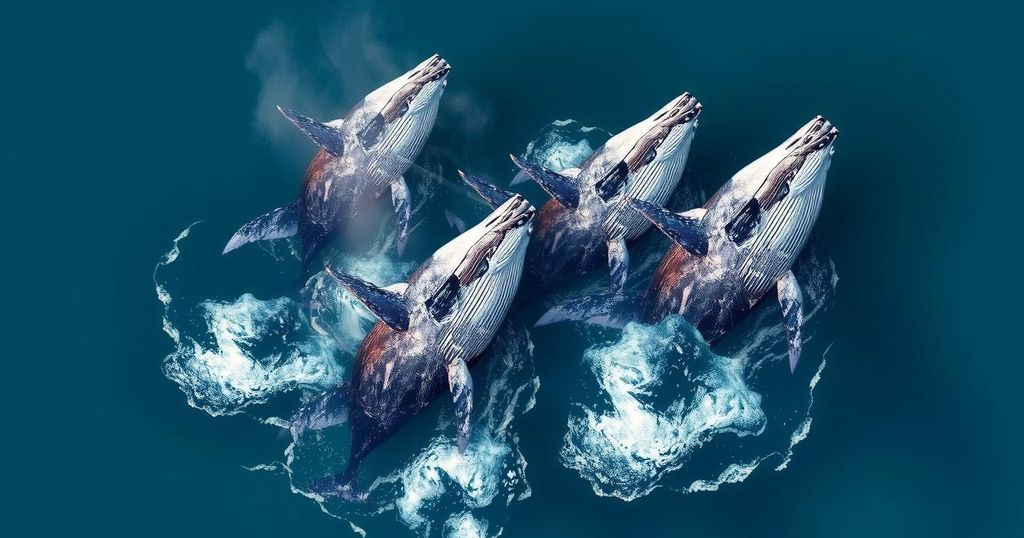Recent studies indicate that a humpback whale has migrated far beyond its normal route, raising significant concerns about the effects of climate change on whale behavior and marine ecosystems. This unusual migration may elucidate broader ecological issues, including the stability of krill populations, a primary food source for whales, as well as reflect potential success in conservation efforts. Understanding these patterns is vital for effective wildlife management and climate change mitigation strategies.
Humpback whales are known for their extensive migrations from warmer breeding grounds to cooler feeding areas, yet recent observations reveal a concerning deviation in this migratory behavior. A particular whale observed in Zanzibar was confirmed to have traveled from as far as Colombia, raising alarms among researchers regarding the implications of such atypical movements. A comprehensive study, published in the journal Royal Society Open Science, analyzed the potential causes of this behavior, which may include climate change, extreme environmental events, and species evolution, as stated by lead researcher Dr. Ekaterina Kalashnikova.
The significance of this research lies in the uncertain future of whale migrations, primarily influenced by krill populations, their essential food source. Warmer ocean temperatures, attributed to climate change, have been shown to adversely affect krill availability, which may compel humpback whales to venture farther in search of sustenance. Such disruptions not only threaten the survival of these majestic mammals but also signal broader ecological consequences, as declining biodiversity and destabilized ecosystems are inevitable results of a warming planet. There exists a hypothesis that increased migration range may indicate successful conservation efforts leading to population growth; however, this theory requires further investigation.
Looking forward, this research provides crucial data that may assist in formulating effective conservation strategies in response to climate change. Understanding modification in migration patterns is essential to developing protected marine areas and minimizing environmental impacts. Although certain species may exhibit adaptive behaviors, it is imperative that efforts to mitigate planet-warming pollution continue to enable the survival of numerous species in the long term.
As we reflect on the findings of this study, it becomes evident that the implications of altered migratory patterns extend beyond individual species, signaling profound disruptions within marine ecosystems and emphasizing the urgent need for ongoing research and proactive conservation measures.
The migration patterns of humpback whales are critical to their life cycle, as they travel from tropical breeding areas to colder feeding grounds yearly. This migration is typically predictable, but recent sightings of individuals straying far from their usual paths have sparked concern among scientists. Research efforts have begun to assess the implications of such deviations, particularly in relation to increasing environmental changes caused by global warming and how these may impact the behaviors and survival of this iconic species.
In conclusion, the departure of humpback whales from their typical migration routes underscores the profound impacts of climate change on marine life. The potential deterioration of krill populations due to warmer ocean temperatures could threaten the nutritional status and survival of these whales. Furthermore, this research highlights the necessity of understanding marine migration behavior to establish effective conservation frameworks while also stressing the critical importance of addressing climate change to protect biodiversity for future generations.
Original Source: www.thecooldown.com







